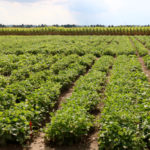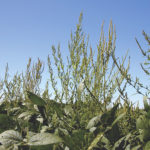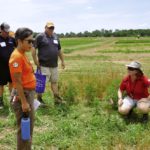Tag Archives herbicides

Easyconnect seals chemical transfer
A specially designed fill valve creates a sealed connection with a chemical container

Crop biological clocks show spraying success affected by time of day
Researchers found that biological processes in plants can determine spray success

Glyphosate out as dry bean desiccant
Bean buyers say that continuing the practice isn’t worth the market risk

Know your tank mixes to avoid incompatibilities with sprayers, products
Jar tests, reading the label and asking trusted advisors are good steps

New option launched to manage resistant weeds in soybeans
Enlist E3 soybeans are resistant to multiple herbicides meaning more options to deal with weed issues

Glyphosate resistant waterhemp moving across Ontario
With its method of pollination and resistance abilities, the weed is becoming harder to control

Canada, France head in different directions on glyphosate
Health Canada says it stands by its earlier re-evaluation of the herbicide, finding it safe for labelled use

Edible bean growers could get more weed control options
Ridgetown College research shows that older chemistries can help control glyphosate-resistant weeds in strip till

Glyphosate drives long-term herbicide changes
Ontario keeps track of detailed herbicide use every five years, which shows how the use of active ingredient has declined

Cover crops can be tricky to kill
Cover crops can be important tools to improve soils, but there’s no single control solution
